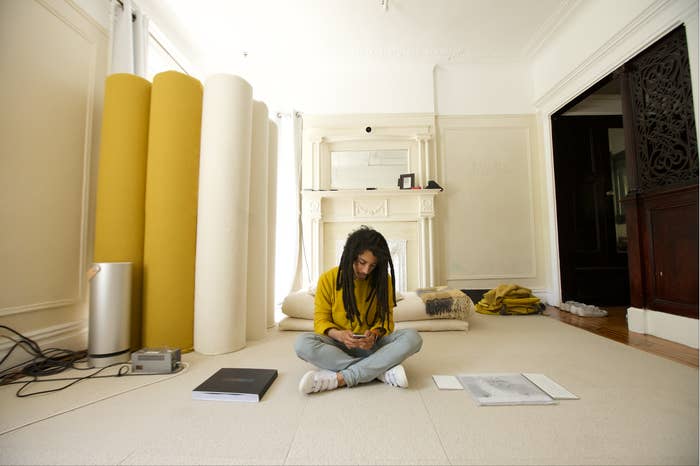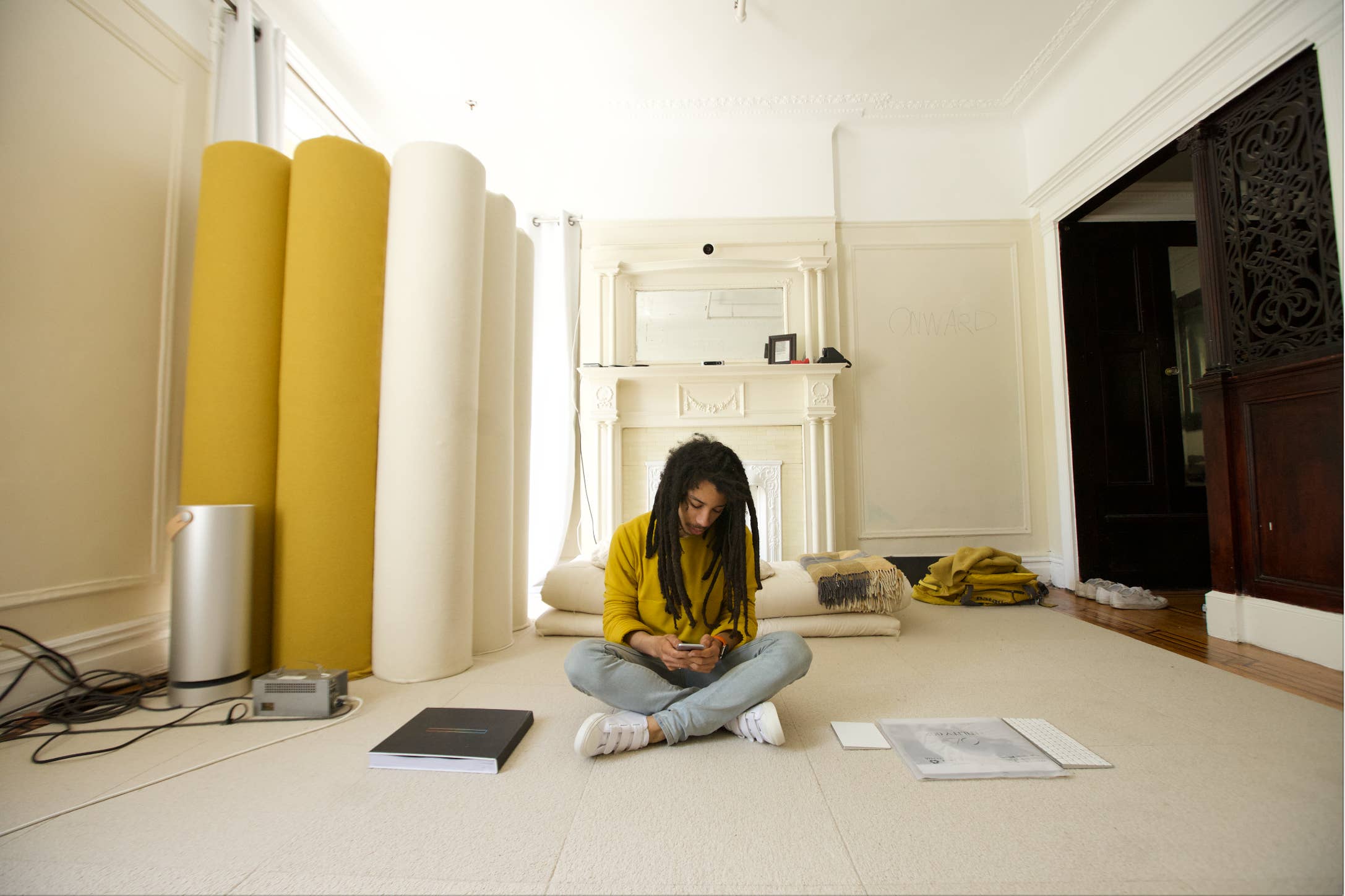
When we got in touch with New York-based artist London O'Connor earlier this year, it was for a potential contribution to our piece about so-called bedroom pop and the emerging wave of DIY-minded young artists on the rise. He emailed back with answers, but added, "All I ask is that if you run any of the answers that you run all of them unedited."
Here are London's answers to the initial questions we asked:
What do you think of the term "bedroom pop"? Is it accurate? Is it restrictive or misleading?
I think I have an emotional connection to every kid who uses that term to describe what they do. Even if I've never met them, I feel like there’s a generational shift we are a part of. I think a lot of kids in that shift feel like “all I have is a bedroom... but I aspire to be pop” and I feel it's more like We. Are. Pop—and of all of the people who are also pop we were raised to do something more honest and intimate... the bedroom is what makes us better. It's not what holds us back.
A thing that we're seeing right now is that a lot of young indie DIY artists are connecting. How important is it for like-minded artists to talk, collaborate, and support each other?
Bedroom pop isn’t a sound—it's a willingness to let your guard down and make something in your most intimate space using what you have. And then share it with people.
Support. Yes. It's valuable but my perspective on that is a little weird because I am a hermit. People know this about me— maybe it's because of the 2 years with no home or bedroom but since building Alpha (my home) I don't get out much. I listen to a lot of music our generation makes, but also to a lot that was made before I was born. I take in a lot of different mediums to figure out what I relate to. I think it's important for people to do that and not associate only w the people immediately around them. The people making art that you're most related to emotionally, they actually might be gone or not born yet. The internet may connect you to them but they may not be around you IRL or online rn. And the main thing is look—you’re free of this structure so you can truly get what's in You out. Don't give that up to start trying to sound like the people you hang with. Or you all don't realize What you have yet.
Can something be bedroom pop if it's not made in a bedroom? Is that label more about achieving a sound, or the means by which that sound is achieved?
Alpha (my home) is my response to that. I just recorded all the vocals for my friend Quiet Luke’s next album in Alpha. He’s not signed but he just sang into a 12K vocal chain in my bedroom. And he didn’t have to appeal to any large company to get access to that chain. When I finished the vocals for utility 002 I just started texting kids I knew who had something to say but didn’t have those resources. Alpha is what I was fighting for when I was sleeping on floors. When I signed and basically dropped off the internet, I went and built a bedroom that would allow me to never need to make an album in a studio in order to sound like them (the pop artists that came before us). That's what I mean by we are Pop but the bedroom is our strength. The way you feel at the end of the day when you get home and let your guard down. That's where we capture our music. Every record is made somehow—that's how our generation is making our records. They can still be clean and beautiful. And they can all be different. Bedroom pop isn’t a sound—it's a willingness to let your guard down and make something in your most intimate space using what you have. And then share it with people.
---
After seeing London's response, we decided to wait to see what he does next before publishing his answers. In May, he released "Anxiety," the first song off an upcoming project called Utility 002: I Love You. He said the album is already finished, added that he made it in his bedroom, and explained that once he played it for the label, they set him free. "This record is just spreading from kids sharing it," he said. "This record is the beginning of what I have been working in my mind to release since the day you met me. On that day I already knew what this album was called."
Some things that had nothing to do with me happened while I was in my bedroom working on my album. Contractually, they meant I would have to be upstreamed to Matador. I love Matador, they are wonderful people and they have a lot of integrity in my eyes. I have a deep respect for them that will not fade. I had maybe four conversations with them since signing though (because they weren't my label, they were a parent label). They represent iconic independent rock music. But now suddenly a month from my album being done they were my main label and I was going to be handing them an album of mostly piano ballads. I make vulnerable pop music. I didn't change what I wanted to express I just made what I knew I needed to make. They heard it before it was mixed, said, 'Thank you for sharing I Love You with us... this is not really a Matador album. But we want to resolve this amicably'. And they did. They set me free.
Since then, other artists like Willow Smith, James Blake, Jameela Jamil, Maggie Rogers, Muna, India Menuez, and Liz Harlan have all shared the song. So what about the label situation, and what happens next? O'Connor offered the following explanation:

